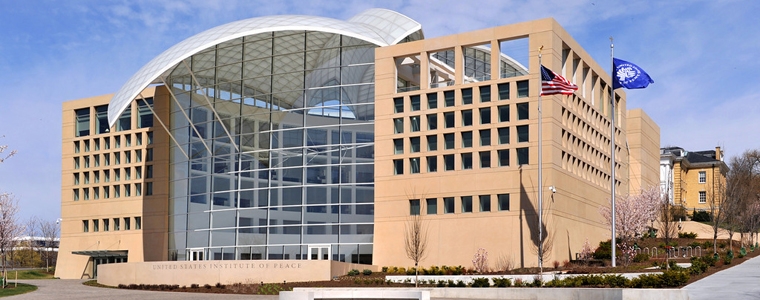[02/17]美国和平研究所USIP | 亚洲会议:中国在中东日渐重要的角色
Asia Conference: China's Emerging Role in the Middle EastChina’s emerging role in the Middle East is expanding in tandem with Beijing’s burgeoning economic, political, and to a lesser extent, military interests in the region. Join the U.S. Institute of Peace and the Georgetown University Center for Security Studies on Tuesday, Feb. 17, for a daylong conference to discuss these dynamics and their ramifications.  Some regional leaders and scholars express concern about the implications of greater Chinese influence while others argue for a greater Chinese contribution to regional stability. China could leverage its significant soft power to help resolve conflicts, for example. A recent Pew global poll found that China's favorability rating in the region was higher than that of the United States. Beijing also maintains working relationships with a number of important governments that the United States shuns, such as Syria and Iran, and might consider contributing to the campaign to degrade and destroy ISIS in Iraq and Syria, given its own interests in combating Islamic terrorism. This conference on China in the Middle East will evaluate China’s nascent regional role, implications for regional security, the reactions of other regional actors, and the impact on U.S. policy. Join the conversation on Twitter with #ChinaMidEast. The conference is co-sponsored by the U.S. Institute of Peace and the Georgetown University Center for Security Studies, and made possible in part through the generosity of the Philip and Patricia Bilden Asian Security Studies Fund. (PDF Agenda) Agenda: 8:30-9:30: Registration 9:30-9:45: Welcome
9:45-10:45: What is China’s Role in the Middle East?
10:45-11:00: Break 11:00-12:00: Does China Enhance Stability in the Middle East?
12:00-12:30: Break 12:30-1:45: 1:45-2:00: Break 2:00-3:00: How Do Different Players in the Region See China’s Expanding Role?
3:00-3:15: Break 3:15-4:15: How Should U.S. Policy Adapt to These Changes?
4:15-4:30: Concluding Remarks: What are Important Areas for Future Inquiry?
Issue Areas: |







